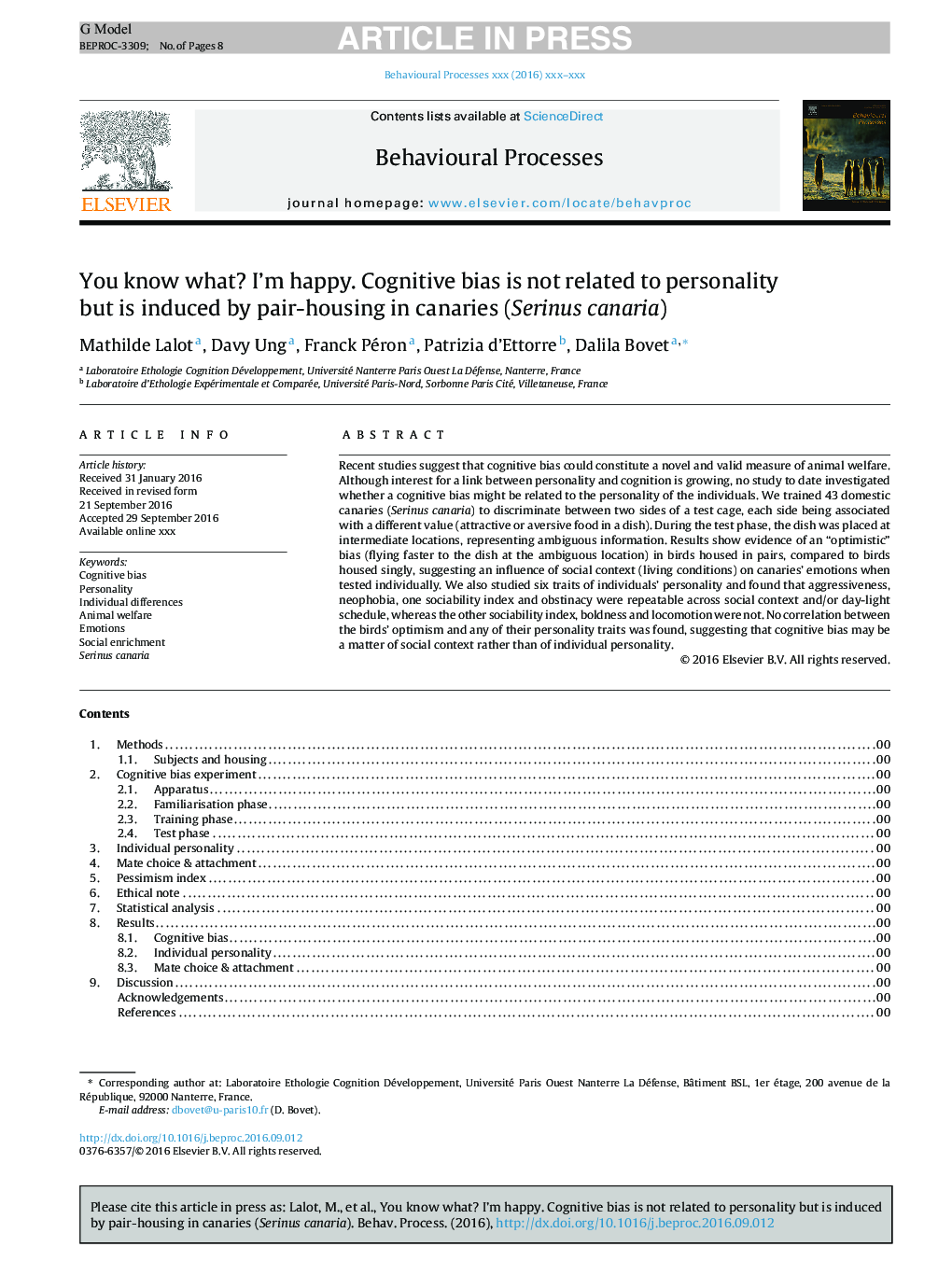| Article ID | Journal | Published Year | Pages | File Type |
|---|---|---|---|---|
| 5539819 | Behavioural Processes | 2017 | 8 Pages |
Abstract
Recent studies suggest that cognitive bias could constitute a novel and valid measure of animal welfare. Although interest for a link between personality and cognition is growing, no study to date investigated whether a cognitive bias might be related to the personality of the individuals. We trained 43 domestic canaries (Serinus canaria) to discriminate between two sides of a test cage, each side being associated with a different value (attractive or aversive food in a dish). During the test phase, the dish was placed at intermediate locations, representing ambiguous information. Results show evidence of an “optimistic” bias (flying faster to the dish at the ambiguous location) in birds housed in pairs, compared to birds housed singly, suggesting an influence of social context (living conditions) on canaries' emotions when tested individually. We also studied six traits of individuals' personality and found that aggressiveness, neophobia, one sociability index and obstinacy were repeatable across social context and/or day-light schedule, whereas the other sociability index, boldness and locomotion were not. No correlation between the birds' optimism and any of their personality traits was found, suggesting that cognitive bias may be a matter of social context rather than of individual personality.
Keywords
Related Topics
Life Sciences
Agricultural and Biological Sciences
Animal Science and Zoology
Authors
Mathilde Lalot, Davy Ung, Franck Péron, Patrizia d'Ettorre, Dalila Bovet,
